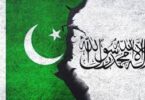Federal Minister for Planning, Development and Special Initiatives, Professor Ahsan Iqbal has said that Pakistan would follow the Chinese model of economic development, which was a miracle of modern times. According to him, the Chinese modern economic development was possible only with the continuation of political stability, social solidarity, and economic policies. Federal Minister expressed these thoughts while addressing a high-level dialogue on China Pakistan Economic Corridor(CPEC) Green Development on Thursday.
The Minister admitted that Pakistan has always lacked political stability and continuity in economic policies due to which economic development has not been possible in the past. According to him, in the year 2020, China’s industrial relocation took place and Chinese Industrial units were shifted to Vietnam and other ASEAN nations but Pakistan could not benefit from it because of no infrastructure in the country. Ahsan Iqbal accused the previous government of massive negligence in completing Special Economic Zones initiated by the PML-N government in 2013 which caused irreparable loss to Pakistan economic development and industrial growth.
Professor Ahsan Iqbal has rightly identified the ailment behind the economic depletion of the country and also acknowledged the fruit grasped by China of its political stability and continuation of policies. In fact, Mao Zedong and his colleagues were aware of the complications associated with the biparty and multiparty system, and the greed of administrators therefore they introduce one-party system in their country which not only brought political stability but also played a crucial role in economic development and industrial growth of China. Whereas Pakistani Politicians and military men fell prey to lust for power and invaded democracy at it’s early stage. Our establishment attained full expertise in craving out a new political party out of the previous one and every politician considers himself the sole rightful beneficiary of the country’s leadership.
Historically, the myopic policies of the past rulers had created the long-standing structural weaknesses, which fumed corruption, nepotism, low-productivity of industrial units and public entities, increased the circular debt, and government losses. Over the years, accommodative fiscal and monetary policies coupled with less conducive environment for Pakistani exports in the global market remained an important factor of economic degradation in the country. There is no doubt that Pakistan is a resource rich country and possesses countless wealth of mineral fuels, crude materials, livestock, manufactured goods, tobacco products, fertile land and necessary industrial base coupled with untapped energy reservoirs yet we lack in sincere leadership and skilled hands to manage this potential in the best interest of the country .
Interestingly, Political elite has always toed party line in government and public affairs, and ignored national interest most of the time, which not only derailed political process but also disturbed the pace of development in the country. After assuming office, Prime Minister Shehbaz Sharif and his team is continuously advocating for a national consensus in economic matters and a charter of Economy among all political parties but opposition has refused to engage with the government.
In fact, all Political Pundits must sit together and forge a consensus among themselves on the basics of politics, otherwise their egoistic ideologies will be continuously dispelling political and economic instability and add to the woes of the public.






